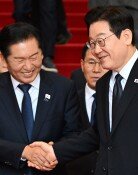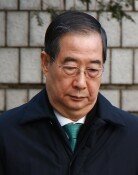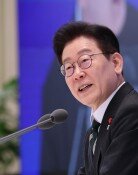Government Requests Easing of U.S. Visa Issuance Procedures
Government Requests Easing of U.S. Visa Issuance Procedures
Posted February. 25, 2004 01:31,
Both the U.S. and Korean governments are now sitting on the pending questions of the first Korea-U.S. Quarterly Trade Meeting of 2004 held at the Ministry of Foreign Affairs and Trade (MOFAT) building located at Sejong Road of Jongno-gu on February 25 and 26.
According to MOFAT, they forecast considerable activity at this convention because the U.S. is preparing to intensively raise issues such as communications standardization, including the Wireless Internet Platform for Interoperability (WIPI), that was developed by Korean technical staff.
It is reported that U.S. plans to officially request the Korean government not to intervene in the process of standardization enactment. In this regard, the U.S. coordinator for International Communications and Information Policy in the Bureau of Economic and Business Affairs and Special Ambassador in Communications, David Gross, announced, It is unfair that the Korean government prohibits companies from choosing other technologies beside the standardization set by Korean government, even though setting communications standards has had no problems, after attending the meeting.
Hence, the Korean government will emphasize that the standard of WIPI is being promoted autonomously by the private sector with the participation of foreign corporations.
WIPI is the software that enables the transmission of data among cellular phones of each different telecommunication company.
In addition, the U.S. will also raise issues such as protection of intellectual property rights including the strengthening of protection for music producers and the prevention of film piracy, the simplification of automobile tax systems and taxation prior to the imposition of tariffs, and non-discriminatory treatment for foreign pharmaceutical companies.
Against the U.S. policy, the government has decided to request the facilitation of visa issuance procedures for non-immigrants, the removal of privatized KT from the Korea-U.S. Telecommunications Agreement and the WTO Government Procurement Agreement, and the immediate revision of U.S. quarantine regulations for the export of Korean agricultural products to America.
Also, the Korea government will point out the unreasonableness of moving Korea from the Watch List (WL) to the Priority Watch List (PWL) for the evaluation of Korean intellectual property rights conducted last January. Besides, they will ensure that Container Security Initiative adopted by the U.S. after 9-11 does not negatively affect Korean business activities.
Ji-Wan Cha cha@donga.com







